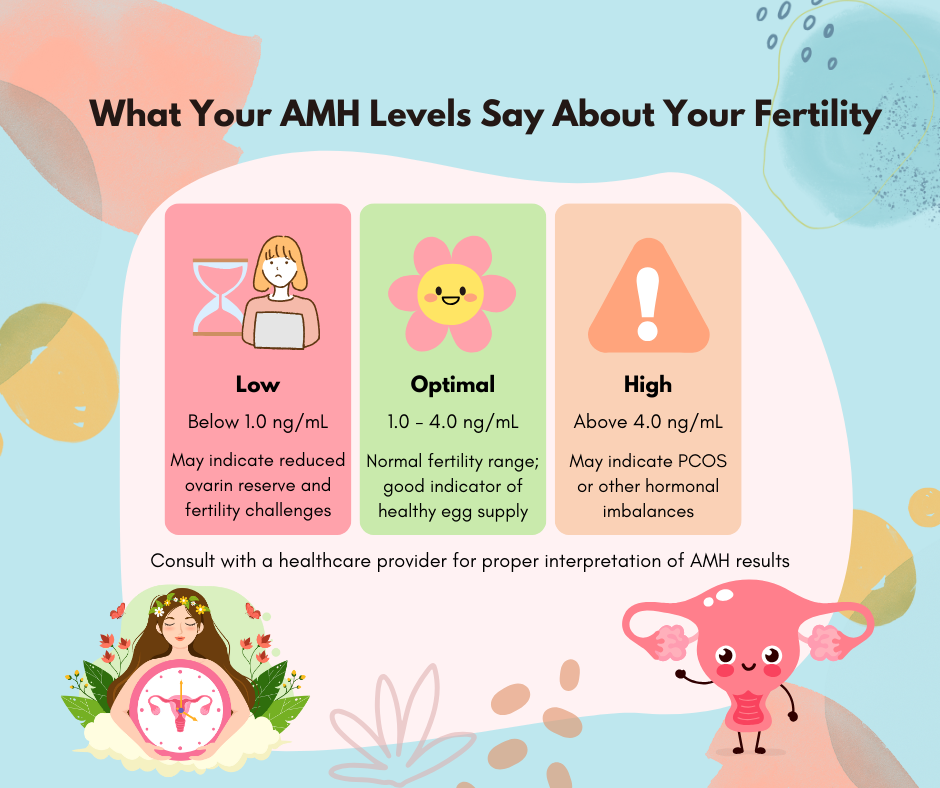What Your AMH Levels Say About Your Fertility

AMH Hormone Test: Understanding Your Fertility
The Anti-Mullerian Hormone (AMH) test is a simple blood test that helps assess a woman’s ovarian reserve, or the number of eggs remaining in the ovaries. Unlike other fertility hormones, AMH levels remain stable throughout the menstrual cycle, making it a reliable indicator of reproductive health.
Why Test Your AMH Levels?
✅ Evaluate fertility potential and family planning options
✅ Guide infertility treatments like IVF
✅ Predict the onset of menopause
What Do AMH Levels Indicate?
🔹 Less than 1.0 ng/mL → Low ovarian reserve, lower chances of pregnancy
🔹 1.0 – 3.5 ng/mL → Optimal range for IVF stimulation
🔹 Above 3.5 ng/mL → High ovarian reserve, possible risk of ovarian hyperstimulation
FAQs
Q: Do I need to prepare for the AMH test?
A: No special preparation is required, and it can be done at any time during the menstrual cycle.
Q: Can AMH predict pregnancy success?
A: Not necessarily. Pregnancy depends on multiple factors, including egg quality, sperm health, and uterine conditions.
Key Takeaway
If you’re planning to conceive or want to understand your reproductive health better, the AMH test is a valuable tool that provides insights into your fertility and future family planning.






